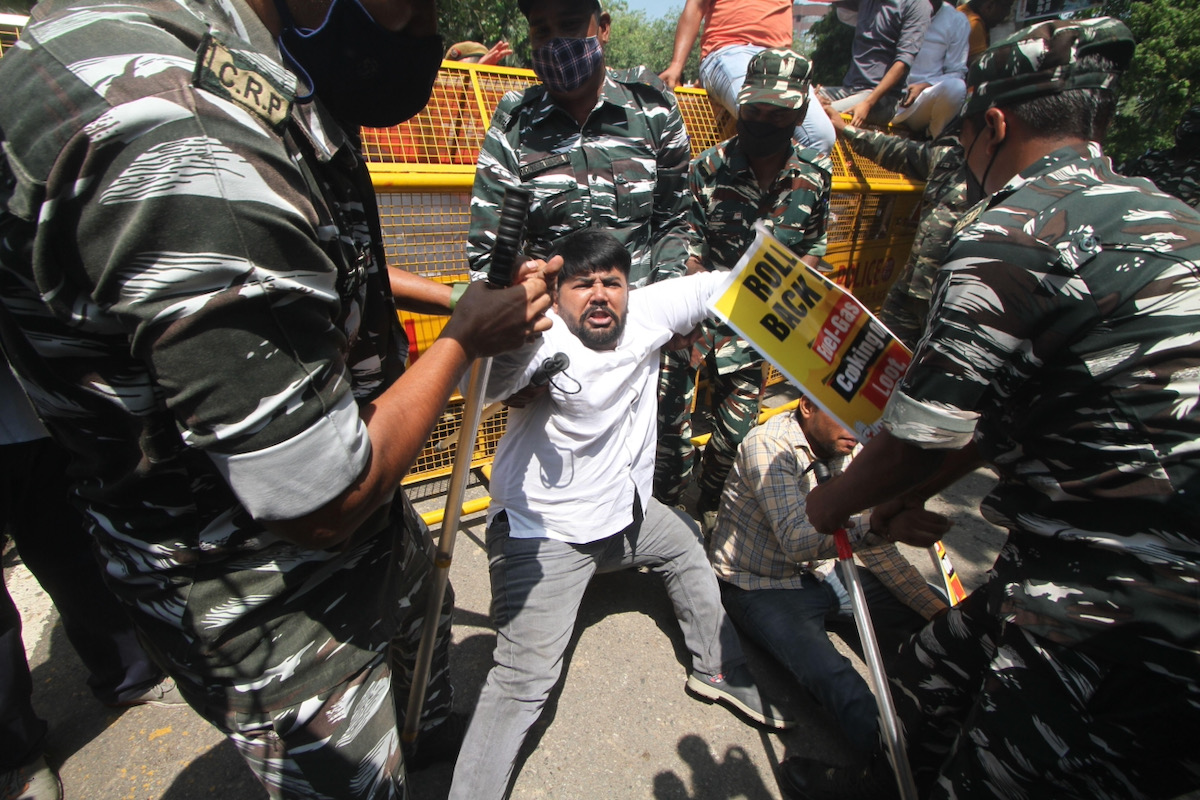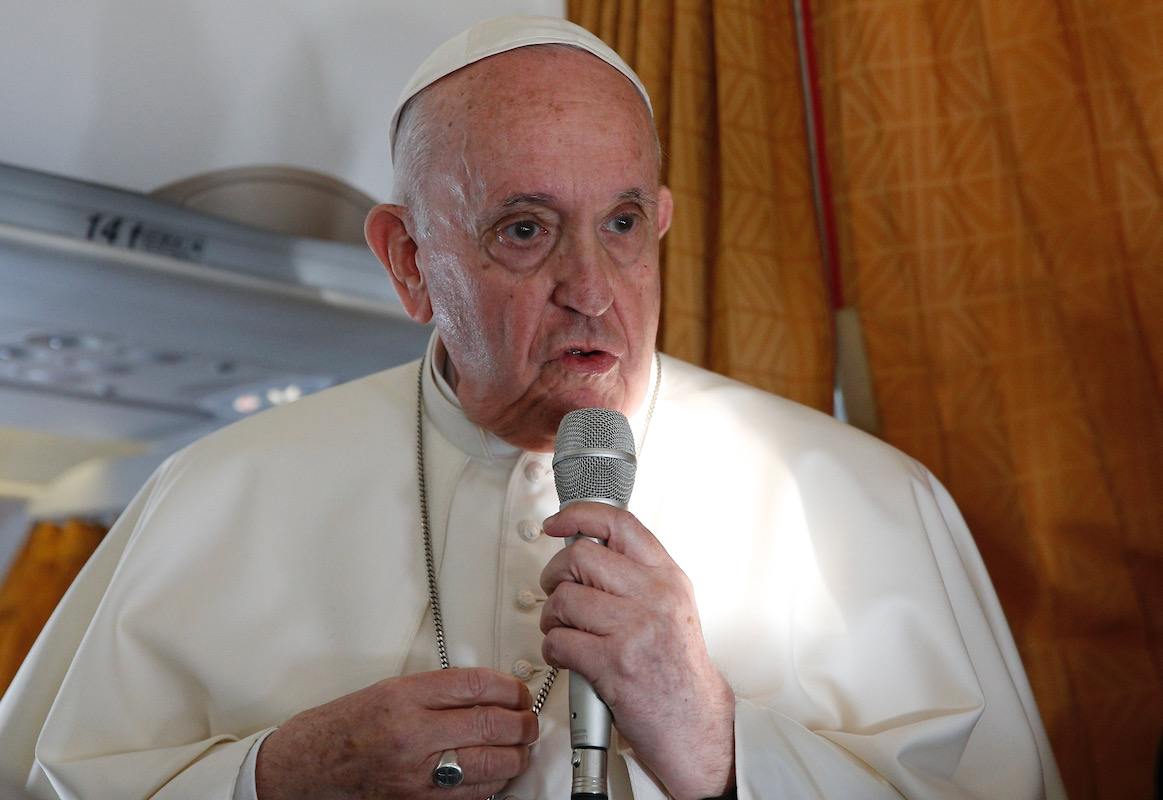“What should the pastor do?” This was Pope Francis’ challenge to those bishops in the United States who want to bar President Joe Biden and other Catholic politicians from communion on the grounds of their support for abortion rights.
For the first time since the abortion-communion row erupted, Francis was asked directly about the controversy. Speaking onboard the papal plane returning from Slovakia he was asked what his advice to the bishops would be. His response can be summed up as follows: stop politicising the Eucharist, and start acting like shepherds.
“I have never refused the Eucharist to anyone. Anyone!” the Pope said in an answer to a question from Gerard O'Connell of America. “If you say to me: but can you give or cannot give [Communion]? It is casuistry…”
The Pope was not saying that anyone and everyone is welcome to receive communion, nor was he telling the US bishop what to do in specific terms.
His crucial point was over process, arguing that drawing up a detailed list of theoretical rules over who can or cannot receive the Eucharist is not the approach the Church should take. Nor should bishops be issuing specific guidance in response to changing political circumstances.
Francis’ words, therefore, call into question the strategy adopted by those among the US Bishops who decided the time was right to produce a document on who can receive communion in light of the election of Biden, a Catholic who is supportive of legal abortion.
It was widely interpreted as a political move designed to send a message to the Biden administration, but one the Vatican warned against. Following Francis’ words during the papal plane press conference, those who still want to press ahead with efforts to deny communion to politicians are placing themselves on a collision course with this pontificate. The bishops are planning to produce and then vote on their Eucharistic Coherence document in November.
The Jesuit Pope warned that history showed how “every time” bishops go down a political route in response to a problem they drift from their core pastoral vocation.
“If you go beyond the pastoral dimension of the Church, you become a politician,” Francis said.
He went on: “What should the pastor do? Be a shepherd, do not go around condemning.” Those who minister in God’s style, he explained, demonstrate “closeness, compassion, and tenderness”.
The Pope combined his focus on the pastoral with a repetition of his full-throttled opposition to abortion. No one in the US can accuse him of watering down this teaching.
“Abortion: it's more than a problem, it's homicide,” he said. “It’s a human life. This human life must be respected. This principle is so clear.”
It is a principle that places the Church against the prevailing winds of the political culture with Cardinal Wilton Gregory, the Archbishop of Washington DC, recently rebuking President Biden for “not demonstrating Catholic teaching” after Biden said he disagreed that life beings at conception.
What Francis’s comments demonstrate is that being committed to a non-negotiable element of Christian teaching over when life begins can be maintained without being drawn into the culture wars.
Nor should it lead to a punitive Church. According to Canon Law, anyone who participates in an abortion is automatically excommunicated, although the Pope said that a priest or bishop is “a pastor also for the excommunicated.” Any sanctions set down by the Church law, one church official explained to me, are not designed to be used punitively but in a restorative way. The idea is to bring a person back into the fold, not drive them out. It was following this principle of mercy that led to the Pope hand priests the authority to forgive women who have had abortions without needing to request permission from the bishop.
Francis’ latest remarks on abortion and communion are also in line with what he has said on these issues throughout his pontificate. In 2013, he said that while the teaching of the Church is clear, “we cannot insist only on issues related to abortion, gay marriage and the use of contraceptive methods”.
On who can receive communion, he has refused to issue one-size-fits-all rulings and focussed on pastoral realities. As a result, he has opened the way for divorced and remarried believers to return to the sacraments on a case-by-case basis and said Lutherans married to Catholics should personally discern whether to receive communion in the Catholic Church.
All of this is frustrating for those who want things set out in black and white, but it is entirely in keeping with a Pope who believes the Church's task is to “form consciences, not replace them.”
Right from the start of his papacy, Francis has talked about his vision of a field hospital Church rather than a “heavy bureaucratic customs house” constantly “inspecting and questioning.” It’s about mercy, not condemnation. He’s been making this point consistently in speeches, homilies, documents and press conferences for the last eight years.
The question now is whether the US Bishops will start listening.



 Loading ...
Loading ...